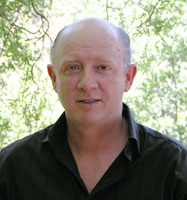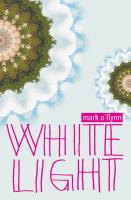 ‘O’Flynn’s faultless ear for laconic Aussie parlance, his wry ability to turn a story in a moment from comedy to tragedy and back again, his exhilaratingly deft range…all this makes him one of a kind, in my opinion. A hugely enjoyable collection.’ CATE KENNEDY
‘O’Flynn’s faultless ear for laconic Aussie parlance, his wry ability to turn a story in a moment from comedy to tragedy and back again, his exhilaratingly deft range…all this makes him one of a kind, in my opinion. A hugely enjoyable collection.’ CATE KENNEDY
1. Who are the short fiction authors you admire (Australian or otherwise, alive or dead)?
Carver, Alistair Macleod, John Updike, Robert Drewe, Frank Moorhouse, Cate Kennedy, Paddy O’Reilly, Margaret Atwood, even Barbara Baynton. Many others.
2. What is the most memorable short story you have read? And why does it stand out for you?
Can I give you three? Walking Out by David Quammen; The Lost Salt Gift of Blood by Alistair Macleod, A Temporary Matter by Jhumpa Lahiri, strangely only one from the list above. All three do astonishing things with narrative you never would have thought possible in such a short space of time, like condensed novels, ones that have always stayed with me. Gobsmacking. Peter Goldsworthy’s The Kiss, also.
3. Tell us about your favourite book of short stories?
Gee, that’s hard. I think The Lost Salt Gift of Blood, by Alistair Macleod, set largely in Nova Scotia. The most remarkable narratives spanning generations, yet condensed brilliantly, and profoundly moving. I thought at the time you don’t really know what cold is until you read Macleod.
4. What do you like about the short story form?
Its succinctness. The fact that it’s a complete little world unto itself, like a snapshot that also allows of experiment you probably couldn’t explore in a novel. You can read them quickly, in this world of instant gratification, unlike committing yourself to a blockbuster.
5. Which of your stories are you most fond of right at this moment and why?
That’s like asking which child is the favourite. I suppose the excitement factor is always higher with the most recent story. It’s still a growing thing and needs your help. I am fond of the one about Iago, but I wouldn’t want to be biased. It’s not the latest.
6. Where do the ideas for your stories come from? (Take us through an example)
They usually come from a fleeting image, or anecdote that I’ve heard, or something I’ve read that sticks in my mind. Let’s take Iago: I read a short story by Margaret Atwood which gave Horatio’s version of Hamlet’s situation. The language of it was contemporary, yet it made perfect sense of the Elizabethan character. So I began to wonder what Iago might have to say after his last lines in Othello. Because it’s a play I began to think of the voice in terms of a monologue, (Iago has eleven). There was a great freedom to play with the language and the idea of suspension of disbelief. It was a theatrical and crazy kind of game.
7. What is your writing process – from idea to publication? (Do you go it alone or are others involved?)
With short stories it is usually only me involved. Anything longer I have a few close friends who are good readers and whose ear I trust. Once the idea bites I always write everything by hand before I’m ready to type it out. Not to do that feels like cutting corners. Then I start the long process of editing and rewriting. The initial impulse is usually quite fast, the faster the better really, so it’s very messy. Then I slow down and am more rigorous and methodical. Sometimes I will leave a story to sit for years, perhaps not always on purpose. When I think it might be ready I send it out and I have sometimes used the first rejection as part of the editing process. Why did they reject that? Ah, I see now, and it helps with the rewriting and clarifies what might actually be going on.
8. Tell us about this collection of short stories. What advice would you give a reader about how to read your collection?
These stories represent a range of subjects that have interested me over the years. Some of the stories are quite old, some relatively new. There are some of the same characters who crop up, or who appear in the background of someone else’s story. It is interesting for me to see how my own preoccupations also come to light in different guises over many years. I would like them to be read independently of each other, rather than as an interlinked sequence. The links are a bonus.
9. What role did you have in the collection’s title, the selection and order of stories etc? What have you learnt from the process?)
The title came quite naturally. It’s the title of the longest story in the collection. Plus it had a nice ring to it. Spineless Wonders made an initial selection from the (larger) contribution I submitted, so that threw my original order out of synch, which I was never very possessive about. Later two stories were added. I was quite happy for the collection’s editor, Annie Parkinson, to choose the final order. In fact I found that quite interesting to see what that order might be and how the stories might bounce off each other. It’s important to be open to other people’s ideas about these things.
10. What’s the most useful piece of advice you’ve received as a writer?
I’ve always like Gwen Harwood’s comment that she would never sleep under the same roof as a rejected manuscript. Perhaps not literally, but it has implications for perseverance, for taking rejection with a considerable pillar of salt, for getting on with it.
Born in Melbourne, Mark O’Flynn now lives in the Blue Mountains. His first novel, Grassdogs was published in 2006 after winning the Harper Collins/Varuna manuscript prize and his latest novel, The Forgotten World, by Fourth Estate/HarperCollins Australia, 2013. His short stories, articles, reviews and poems have appeared in a wide range of journals and magazines both here and overseas including Australian Book Review, The Bulletin, The Good Weekend, Heat, Westerly, Meanjin, Southerly, Island, Overland, New Australian Stories (Scribe) and Best Australian Stories (Black Inc).
